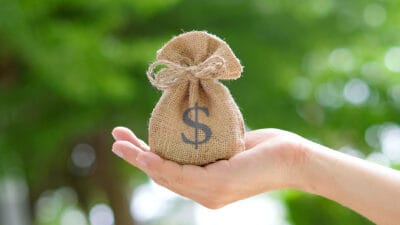BHP Group Ltd (ASX: BHP) shares are no longer among the world's top 20 dividend payers, according to the latest Janus Henderson Global Dividend Index report.
It's not that the miner has slipped from its position as a dividend king amongst other businesses.
In 2005, BHP paid 19.5 cents per share in dividends. In the last 12 months, the mining giant's payout has been $2.22 per share, with a trailing yield of about 5.5%. That's an 11.5 times growth in income alone over that 19-year period.
And BHP's payments reached as high as $4.60 per share during the mining cycle of 2022 when many companies were paying special dividends from their free cash flows.
Alas, the mining giant's fall from this prestigious list highlights the latest shift in global dividend distributions. Let's take a closer look.
Why have BHP shares dropped out?
The Janus Henderson report measures global dividend trends over time, allowing investors to make useful comparisons between countries and sectors. It constructs an index, with the base year of 2009 starting at 100. It is now approaching the 250 level.
Janus' latest findings show global dividends reached a Q3 record of US$431.1 billion in 2024, up 3.1% year on year. Businesses are in good shape and returning capital to their shareholders. Great.
But BHP's dividends have been overshadowed by major cuts in the mining sector.
This fits with the broader trend of resource-heavy nations like Australia seeing softer payouts amidst declining commodity prices.
In a seasonally important quarter for the region, payouts from Asia-Pacific ex Japan were markedly lower, dragged down by weakness in Australia..
A stronger Australian dollar boosted the headline growth rate… but the underlying picture was down 0.8%.
The list also shows that BHP was in the top 10 global dividend payers in six of the last seven years, taking the third quarter of each year into consideration.
Australia's banking majors also appear among the global tech and mining colossi. Go, Australia.
In Q3 2021, BHP was the largest payer, whereas in Q3 2022, it was the second largest.
But fast forward to the most recent quarter, and BHP shares are nowhere to be found on the list. In fact, there is hardly a mining company in the top 20, let alone the aristocrats on the list.
What's driving this shift?
The shift in how companies return significant capital to their shareholders is part of the dynamics of the global economy.
Markets move in cycles, predicated by movements in the overall business cycle.
Janus Henderson's report attributes the overall 3% growth in global dividends to the United States and Asia-Pacific, excluding Japan.
US tech companies like Alphabet and Microsoft now dominate the rankings, with Microsoft claiming the fourth spot last quarter.
But it's Chinese companies that have lifted the payouts this year, with the top three and fifth companies on the list all reigning supreme.
It's no surprise that China Construction Bank Corp is at the top of the list — it has held this position every year since 2018 except when BHP stole the crown in 2021 when it came in second.
In terms of sector payouts, the average from 2018 to date is seen in the table below, rearranged in descending order.
| Sector | Average, 2018–24 |
| Financials | $91.74 |
| Oil, Gas & Energy | $40.51 |
| Technology | $33.89 |
| Basic Materials | $31.40 |
| Consumer Basics | $29.10 |
| Healthcare & Pharmaceuticals | $23.03 |
| Industrials | $23.03 |
| Communications & Media | $22.23 |
| Utilities | $22.23 |
| Consumer Discretionary | $15.00 |
Is there still value in BHP shares?
Despite falling from the dividend-paying elite, Goldman Sachs rates BHP shares a buy with a $47.30 price target.
The broker likes BHP's investment in its Chilean copper operations, which, if executed perfectly, could deliver up to 0.5 million tonnes of annual production.
Copper is considered a critical metal for the energy transition, with demand expected to soar over the next decade. Time will tell how this progresses for BHP.
Foolish takeout
BHP shares may have fallen from the top 10 global dividend payers' list, but that doesn't mean the company has stopped its policy of returning cash to its shareholders.
On the contrary, consensus expects dividends of $1.6073 per share in 2025, presenting a forward yield of 4.3% before the open on Monday.









